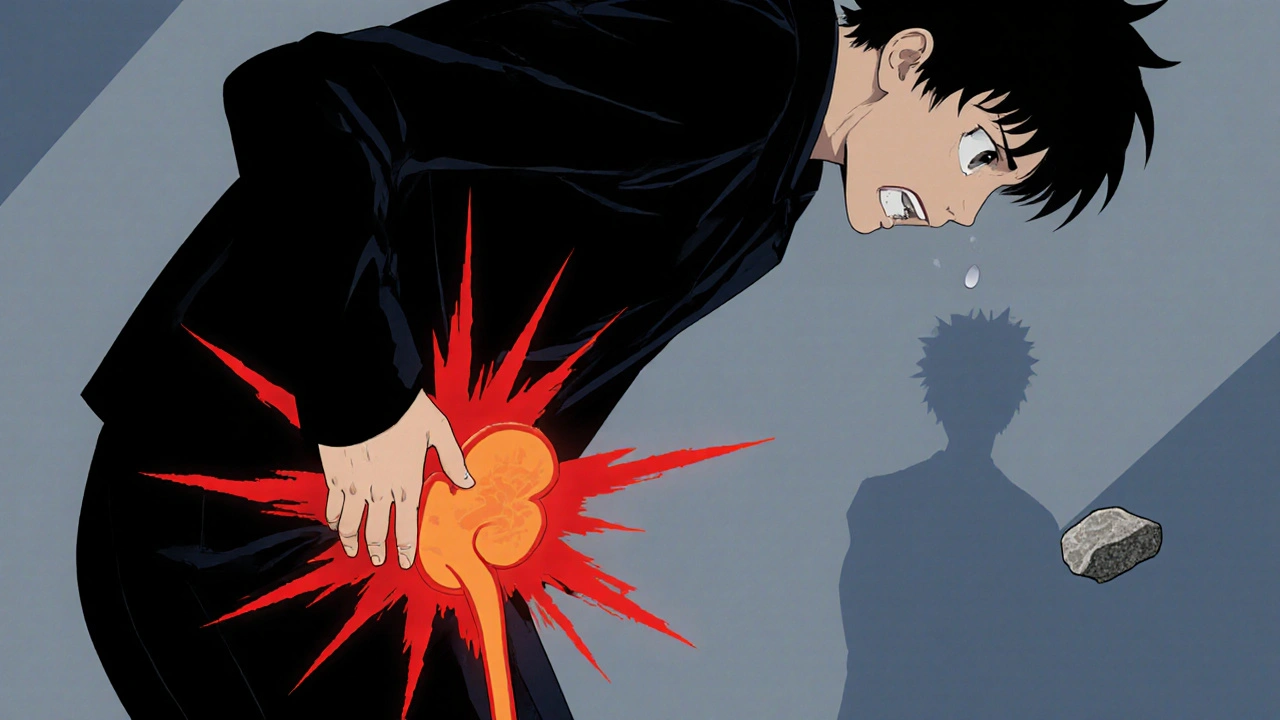Prevention of Kidney Stones: Simple Steps to Avoid Pain and Surgery
When you hear prevention of kidney stones, the process of reducing the risk of forming hard mineral deposits in the urinary tract. Also known as kidney stone management, it’s not about fancy supplements or extreme diets—it’s about daily choices that keep your kidneys clear and your body comfortable. Around 1 in 11 people in the U.S. will get a kidney stone in their lifetime, and many of them end up in the ER with unbearable pain. But here’s the truth: most of these cases are preventable with simple, everyday habits.
One of the biggest mistakes people make is thinking they need to cut out calcium. Actually, getting enough calcium from food—like yogurt, cheese, or leafy greens—helps bind oxalate in your gut so it doesn’t reach your kidneys. Skipping dairy or taking calcium supplements without food can do the opposite. Then there’s water. Not just drinking it, but drinking enough. Most people need at least 2.5 to 3 liters a day, especially if you live in a hot climate or sweat a lot. Your urine should be light yellow, not dark. If it’s darker than apple juice, you’re not drinking enough.
What you eat matters just as much as what you drink. Foods high in oxalate—like spinach, nuts, beets, and sweet potatoes—can increase stone risk if eaten in large amounts without enough calcium. Salt is another silent culprit. Too much sodium makes your kidneys dump more calcium into your urine, which feeds stone formation. And while soda and sugary drinks are often blamed, it’s not just the sugar—it’s the phosphoric acid in colas that’s the real problem. Swap them for water, lemonade (made with real lemon), or herbal teas.
Some people worry about protein. Too much animal protein—red meat, chicken, eggs—can raise uric acid and lower citrate, two factors that promote stones. You don’t need to go vegan, but swapping one meat-based meal a day for beans or tofu can make a difference. And if you’ve had a stone before, your doctor might recommend a 24-hour urine test. It sounds complicated, but it’s just collecting all your urine for a day to see what’s in it. That test tells you exactly what kind of stone you’re prone to, so you can adjust your habits, not just guess.
You don’t need to overhaul your life. Start with one thing: drink more water. Then add one more: check your salt intake. After that, think about calcium sources. These small shifts cut your risk by up to half. And if you’ve had a stone before, you’re more likely to get another. That’s why prevention isn’t optional—it’s your next best move after treatment.
Below, you’ll find real, practical guides on how different medications, supplements, and lifestyle habits connect to kidney stone risk. Some talk about how certain drugs affect urine chemistry. Others break down what foods to avoid or how to track your intake without obsessing. No fluff. Just what works.

Why Early Detection and Prompt Treatment Matter for Kidney Stones
Early detection of kidney stones reduces pain, costs, and complications. Learn symptoms, diagnostics, treatment options and prevention tips to stay stone‑free.
